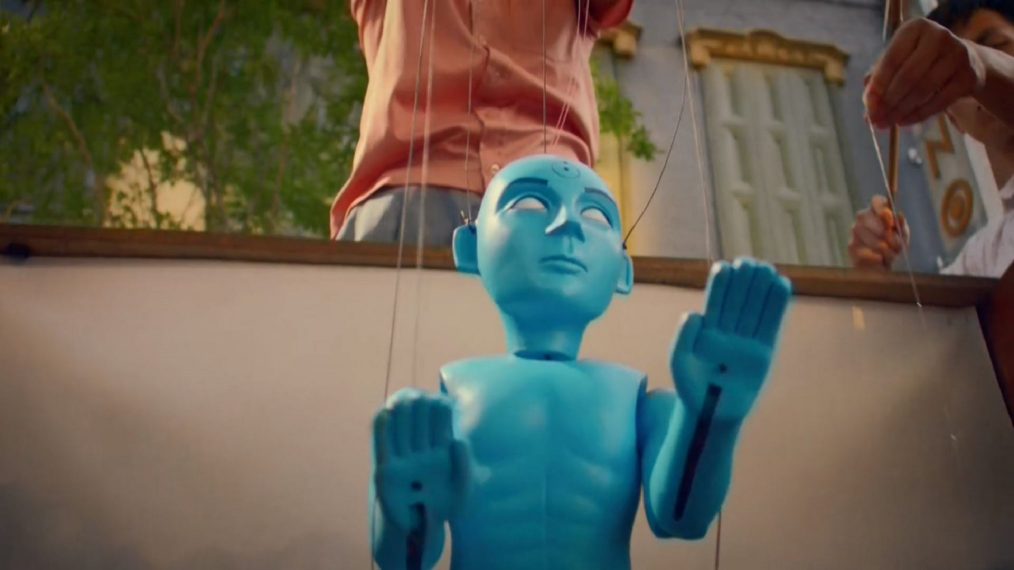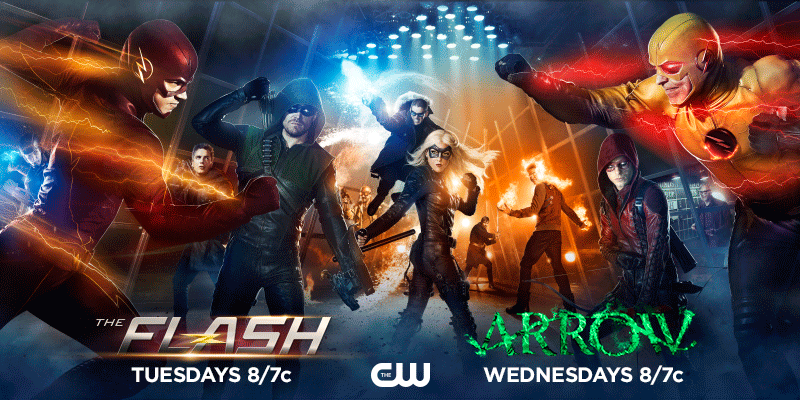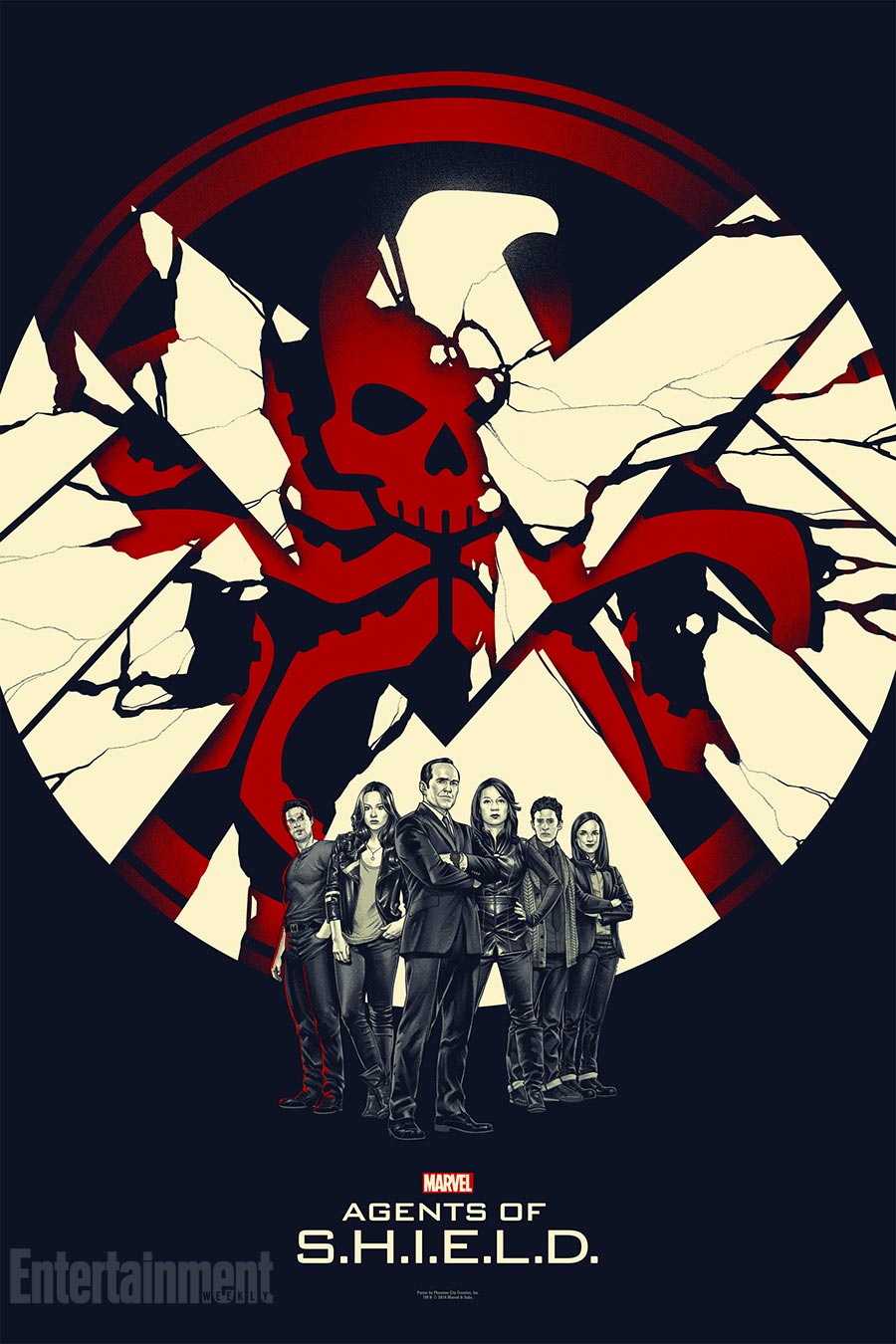We get a lot of questions answered in “An Almost Religious Awe” about Angela Abar, Lady Trieu, and Doctor Manhattan.
SPOILERS:
In the seventh episode of Watchmen, we finally learn three essential mysteries.
We discover that Lady Trieu and Will Reeves created the Millennium Clock to save the world. Lady Trieu knows that Doctor Manhattan is on Earth disguised as a normal human being and that Seventh Calvary is planning to find Doctor Manhattan then murder him so they can become him. Neither Lady Trieu or the Seventh Calvary reveal how they plan to do either, but based on the radical steps they are all taking, we know it’s a real danger.
We know that if KKK members become the most powerful beings in the universe, Doctor Manhattan, it would be horrible. We also find out that Calvin Abar is Doctor Manhattan in disguise!
I suspected that Doctor Manhattan is one of the main characters in Watchmen, but I did not suspect he is Angela’s stay at home husband in disguise. Thirdly, we learn that Jane Crawford and most likely Judd Crawford are, in fact, part of the Seventh Cavalry. We see Jane casually admit to Agent Blake that she is involved with the Cavalry, then use a trap door to imprison the FBI agent. At the end of the episode, Agent Laurie Blake is captured by Senator Joe Keene, Jr. He starts to reveal the Seventh Calavary’s plan to her as the episode ends.
Much of the episode is told through Angela’s flashbacks of her tragic childhood in Vietnam, which are triggered by Lady Trieu’s treatments for her Nostalgia pill overdose. There were a couple of interesting insights and setups that I found throughout Angela’s flashbacks to her childhood which are intermixed with pieces of Will Reeve’s memories. These childhood memories teach us why Angela Abar is so hardened to the world and became Sister Night, the masked violent detective.
The most “easter egg” aspect was the DVD of the movie Sister Night that appeared throughout her early childhood flashbacks. The film Sister Night seemed like a Black Exploitation film about a woman superhero who wore a similar outfit to Angela’s Sister Night suit. Angela’s father, Marcus Abar, won’t let her watch the film because he was scared of his dad, Hooded Justice, so he doesn’t want his young daughter Angela admiring superheroes.
Marcus and her mother’s final act before they are killed is to send their daughter Angela Abar back to the video store to return the DVD. After she leaves, a Vietnamese terrorist jumps right in front of them to protest the American’s colonization of Vietnam. Six-year-old Angela looks back to witness her parents being blown up.
I want to remind my readers that June had rescued Angela from a Vietnamese orphanage, that was more like a forced labor camp before she has the flashback of when an elderly June takes her granddaughter Angela to lunch. In this flashback, we see the Sister Night DVD again. Angela tells June that her parents wouldn’t allow her to watch Sister Night, but that she wanted to see the film so badly because the main character looked just like her. June points out that nobody looked like Angela in Vietnam even though the country has become an American state. There are no other Black people in Vietnam. June promises Angela they will watch the film at home. After dinner, June loads Angela into a taxi to take her back to Tulsa. The little girl is about to return to her ancestral home when June suddenly falls dead. So now Angela is stuck in Vietnam.
These scenes first establish why June picked the name, Sister Night. Like her grandfather Will Reeves, she was inspired by a film to become a vigilante. Perhaps Angela has put up so many walls because everybody she viewed as family died in front of her.
I find it super interesting that the writers chose to make Angela Abar, a Black woman who has been raised entirely in Vietnam where she is even more of a minority and outsider than she would be in the United States. Perhaps this is why the adult Angela doesn’t fit in anywhere. In fact, when she is shown teaching her adopted children about Vietnamese cuisine we are left with the impression that she is more connected with Vietnamese culture than Black culture.
What ultimately establishes why Angela appears to be so violent is the incident when the Vietnamese police officer named Jen takes her out of the orphanage briefly to help solve her parent’s murder case. Officer Jen asks Angela to identify the man who handed the suicide bomber a backpack. Angela makes the identification, and Jen’s partner takes the man away. The implication is he’s going to kill the suspect. Angela asks if she can listen to him being killed. Officer Jen smiles, then hands the little girl her badge and tells Angela to come to find her when she grows up. We hear a loud popping noise. The criminal has been executed, but Angela doesn’t even flinch. After her parents died, she wanted revenge, became hardened to death, and wanted to be an officer of the law because the police killed one of her parent’s murderers. We know now that her motives for becoming Sister Night were never pure.
I enjoyed how at the start of “An Almost Religious Awe” director Daniel Semel and writers Stacy Osei-Kuffour & Claire Kiechel establish that we would learn more about Doctor Manhattan throughout the episode. The episode begins with a documentary revealing how Doctor Manhattan went from being an ordinary scientist named Dr. Jonathan Osterman to a god-like blue figure. The day her parents are murdered, Angela watches a puppet show about Doctor Manhattan. There are toys, balloons, and people dressed up like Doctor Manhattan throughout the streets of Vietnam. When we first see Angela in the orphanage, all the children are painting Doctor Manhattan Russian Dolls. And Angela is always wearing a blue jean dress, which, while not a direct reference to Doctor Manhattan, does remind me of the blueness of his god-like figure.
Even though Agent Laurie Blake (Jean Smart) was not featured heavily in this episode, I thought she stole the show in every scene she was in. I loved the way she both mocked and gathered essential details from her partner Agent Dale Petery on the phone. Even though she was in danger, she sarcastically pointed out to Senator Joe Keene Jr. that villains always tell the heroes their plan. If there is a second season, I hope we see more of Agent Blake. She is one of my favorite characters.
I only had a couple of problems with this episode. I found it bizarre that six-year-old Angela never spoke Vietnamese even though she was raised in Vietnam. We witness grown-up Angela speaking the language earlier in the season, and she appears to understand Vietnamese as a child, but she only responds in English. I know that it must be hard for a child actor to pronounce words in a foreign language like Vietnamese, but this inconsistency took me out of the story. The other thing that bothered me was how violently Angela pulls Calvin apart to reveal Doctor Manhattan underneath his skin. She knocks him out with a hammer, then pulls his skin off with her fingers. We don’t see anything, but the sounds are enough to make me squirm. I don’t mind most violence in media, but I will admit that anything involving torture freaks me out. The last issue I have is that I find Adrian Veid’s trial storyline boring. It is not necessary for the story other than the fact that we now know that clones have self-awareness. I am sure all the connections will be revealed in the finale.
The promo for episode eight ” A God Walks into a Bar” shows Angela as a young officer in Vietnam meeting Doctor Manhattan for a date or some other friendly meeting. I can’t wait to learn more about their romance next week.











